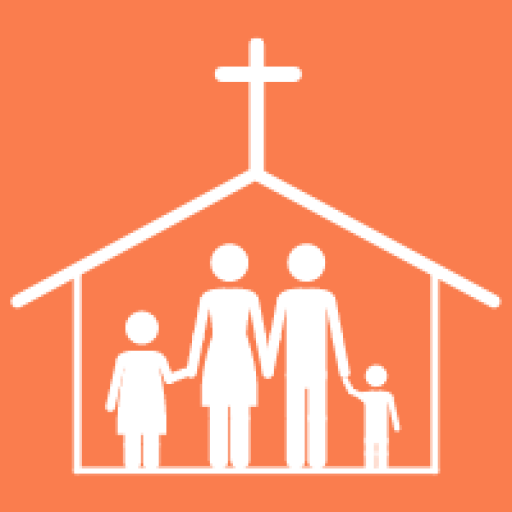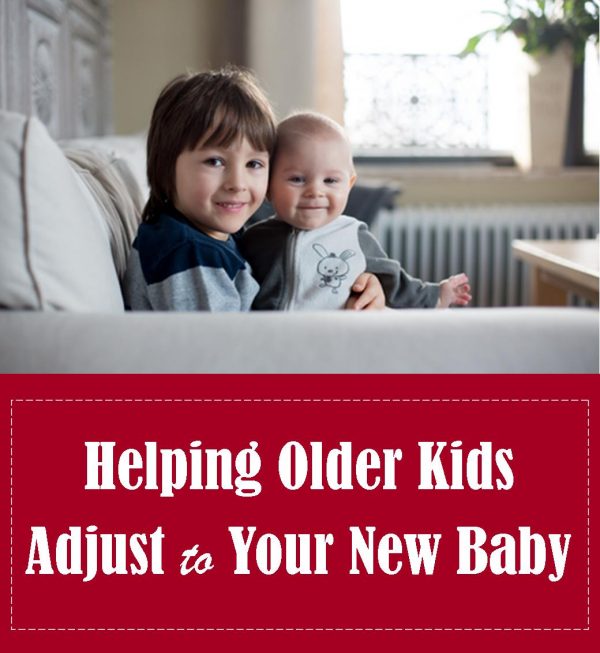“How good and pleasant it is
when brothers dwell together as one.”
Psalm 133:1
When I was eight months pregnant with my second child, my oldest child Aidan announced, “I don’t want a sister.” Now, why wouldn’t he want a sister? Why wouldn’t he want somebody to ride bikes with, to dig in the dirt with, to open presents with on Christmas morning? Well, because he was a normal four year old for one thing.
Sometimes big siblings are excited about a new baby coming from the beginning. They can’t wait to become a big brother or sister, and they’re enthusiastic at every stage of the pregnancy and arrival of baby. But other children can feel anxious, confused, and jealous when a new baby is on the way. Often they are both happy and scared! These children need a little extra help with a transition that is exciting but challenging for them. Just like grown-ups, they can have mixed feelings, especially when they don’t know what to expect.
These feelings of ambivalence about a new child coming into the family are very normal. If we handle it with care, our older child and the new baby will get off to a great start together.
Moving Through Mixed Feelings
It’s important that we recognize how truly threatened little children can feel by the arrival of a new baby. Before the baby arrives, they hear Mommy and Daddy talking about “the baby” a LOT. (And what’s a baby? Who is it? Where is it coming from? What’s it gonna say or do?) They watch Mommy rubbing her baby belly, witness the delight in relatives when they talk to Mommy about the baby coming, and watch Mommy and Daddy shopping for cool stuff for the baby. Then the baby comes. Well, goodness. Now they see Mommy gazing into the baby’s eyes, cooing at her, nursing her.
The second building block in my parenting model is empathy. Empathy allows us to put ourselves in our child’s shoes so we can understand things from his perspective. Empathy allows us to understand why our child might say things about the new baby that seem rejecting or uncaring. If I had considered Aidan’s struggle only from my own perspective, I would have told him to knock it off and get with the program – we were having a baby whether he liked it or not. However, when I looked at Aidan’s problem from his perspective – the perspective of a preschool child with health issues and two overwhelmed parents (I was in law school and Philip was a post-doctoral researcher) — no wonder he was freaked out. He felt unsettled, threatened, and unsure about where he would fit into the picture after the baby arrived.
If we shame our child for feeling ambivalent about the new baby, he’ll learn to hide his feelings or to ignore them, which is an unhealthy response. Without processing those hard feelings, he may build up resentment toward the new baby.
So, in empathy and with compassion, we can let our older child tell us how he is really feeling. We can let him know that feeling jealous, scared, or even angry is normal and okay, and that we’ll help him through it. Open up conversation with your child, perhaps while playing with him or going out for a walk. This way he’ll be relaxed and more open to talking.
Feeling jealous and angry is normal, but, of course, we do want to guide our little children in how to express those feelings in a respectful way. My big point is that the way out of emotional discomfort is to walk through it, not around it. We can mentor our child in how to do this with grace. Over time, he’ll realize that he’s in charge of his feelings and reactions; he can handle his jealous or angry feelings in a way that protects his relationships and builds his character. This is a lesson many adults have yet to learn.
Practical Tips for an Easier Transition
Here a few more practical tips to help a big brothers and sisters cope with their anxiety or fear when a new baby is on the way:
- Show the big siblings photos and videos of himself as a baby: Both before and after the new baby arrives, spend time showing your older child photos and videos that you took of him as a newborn. Point out how your world lit up when he arrived, how delighted you were to meet him for the first time. Doing this helps him see that you treasure him just like you treasure the new baby. He’ll also realize how much he has in common with the new baby!
- Include big siblings in preparations: When we were expecting new babies, Philip and I got into the habit of calling the baby “our baby” or even “your baby” when talking to our older kids about the baby. (“When your baby is crying, she might be hungry or uncomfortable.”) This gave our children the feeling that they were included in the giant excitement ahead. We asked them to help us pick out clothing and other baby items. We even asked for their help coming up with names for the baby. Aidan chose Claire’s middle name, Margot.
- Gentle first introductions: When my older children came to the hospital the first time to meet their new sibling, I asked my husband to phone me when he was on his way up so that I could put the baby in the hospital bassinet. This way, my arms were free to hug my older children before introducing them to the new baby. I also had “big sibling” gifts waiting for my kids when they arrived at the hospital. This made them feel very special, especially when the new baby was receiving gifts from friends and relatives.
- Involve big siblings in baby care: Older siblings will bond better with the baby if they are permitted to hold the baby, help with diapering and bathing, etc. They feel less sidelined and more important.
- One-on-one time: It really helps older siblings adjust when we make an effort to spend “just you” time with them after baby arrives. When I was recovering from my third C-section (when my son Dominic was born), I ensured my older kids had lots of special time with Dad and Grandma, but I didn’t do enough of that myself. Two-year-old Claire was very jealous of Dominic for several weeks. I had to heal my relationship with her first before she was able to open her heart to Dominic. (Now they’re great pals!)
Don’t fall into the trap of comparing your child to a friend’s child who might not have anxious feelings about a new baby. This can cause you unnecessary worry that something is wrong with your parenting or with your child. Kids all deal with big transitions in their own way. With your support and compassion, your child will become a great big brother or sister!
Resources
Big sibling classes: If you’re looking for resources to help you support the big brother or sister, your obstetrician or pediatrician can refer you to older sibling classes before baby arrives. We attended a sibling series with Aidan and it really helped him feel more confident about what was happening.
Also check out Becoming a Big Brother or Sister by Darlene Stango. This is a new book and it looks perfect for opening up conversations with big siblings and helping them prepare for the new arrival.
Image credit: Tatyana Tomsickova for Dreamstime.com

